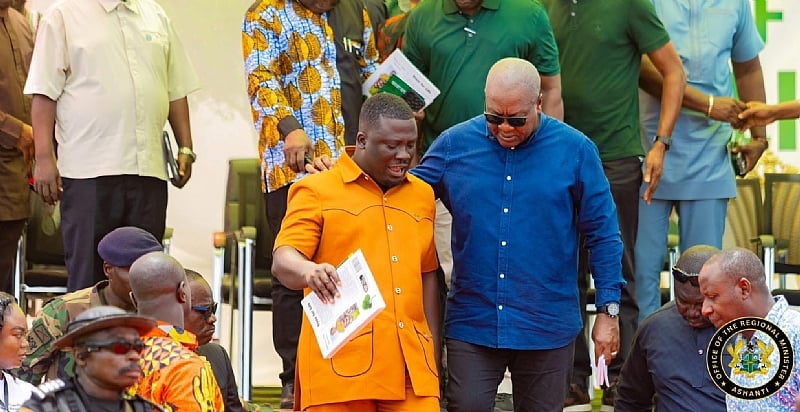The Agyapadie Deal, a controversial gold royalties monetization transaction initiated under the Nana Akufo-Addo administration, continues to cast a long shadow over Ghanaian politics, particularly as the 2024 elections approach. The deal, structured to allow Ghana to leverage its gold royalties for upfront capital, quickly became mired in allegations of corruption and lack of transparency. Critics, including then-opposition leader John Dramani Mahama, argued that the deal undervalued Ghana’s gold assets and lacked adequate safeguards against mismanagement and potential embezzlement. The controversy intensified with the leak of a document purportedly outlining strategies by individuals connected to the ruling party to exploit the deal for personal gain. This document, often referred to as the “Akyem Sakawa” document, fueled public outrage and further solidified opposition to the Agyapadie Deal. While President Akufo-Addo denied any involvement with or knowledge of the alleged scheme, the public perception of impropriety surrounding the deal persisted, contributing significantly to the political discourse leading up to the 2020 elections.
Now, with John Dramani Mahama back in power, the aftermath of the Agyapadie saga continues to shape the political landscape. Ashanti Regional Minister, Dr. Frank Amoakohene, interprets Mahama’s recent actions as a direct response to the perceived damage caused by the Agyapadie Deal and its associated controversy. He argues that Mahama is systematically working to “reset” various sectors and policies, effectively undoing what he perceives as the negative consequences of the previous administration’s handling of the gold royalties issue. This “resetting,” according to Amoakohene, encompasses a range of policy adjustments and initiatives intended to restore public trust and ensure responsible management of Ghana’s natural resources. This interpretation frames Mahama’s current governance as a corrective measure, directly addressing the perceived failures and improprieties highlighted by the Agyapadie controversy.
The Agyapadie Deal represents a complex intersection of economic policy, resource management, and political maneuvering. The government’s initial rationale for the deal centered on maximizing the value of Ghana’s gold reserves by securing immediate capital for development projects. However, the ensuing controversy highlighted critical concerns about transparency, accountability, and the potential for corruption within the proposed structure. The deal’s opponents argued that the long-term benefits of retaining control over the gold royalties far outweighed the potential short-term gains from monetization, particularly given the perceived risks and lack of clarity surrounding the deal’s terms. The controversy underscored the importance of robust oversight and public engagement in the management of national resources, raising questions about the adequacy of existing safeguards against corruption and mismanagement.
The leaked document, allegedly outlining strategies to exploit the Agyapadie Deal, further exacerbated public distrust and intensified the political debate. The document, whether authentic or fabricated, served as a catalyst for increased scrutiny of the deal and fueled allegations of corruption within the ruling party. This heightened scrutiny ultimately led to the suspension of the Agyapadie Deal, demonstrating the power of public opinion and the importance of transparency in government dealings. The incident also highlighted the vulnerability of complex financial transactions to manipulation and the potential for political agendas to influence economic policy decisions.
Dr. Amoakohene’s interpretation of Mahama’s actions as a direct response to the Agyapadie controversy reflects the continuing political significance of the issue. He posits that Mahama is actively working to dismantle the remnants of the Agyapadie structure and implement policies that prioritize transparency and accountability. This interpretation frames the current administration’s actions as a deliberate effort to restore public trust and address the perceived failures of the previous government. It also suggests that the Agyapadie controversy continues to serve as a defining issue in Ghanaian politics, shaping policy decisions and influencing public perception of both major political parties.
The Agyapadie saga remains a potent example of the complexities inherent in resource management and the potential for political controversy to derail even well-intentioned economic initiatives. The controversy highlights the critical importance of transparency, accountability, and robust public engagement in the management of national resources. It also underscores the need for strong institutional safeguards against corruption and the importance of carefully considering the long-term implications of complex financial transactions. As Ghana moves forward, the lessons learned from the Agyapadie Deal will likely continue to shape the country’s approach to resource management and inform the ongoing debate about the best way to leverage its natural wealth for sustainable development.


